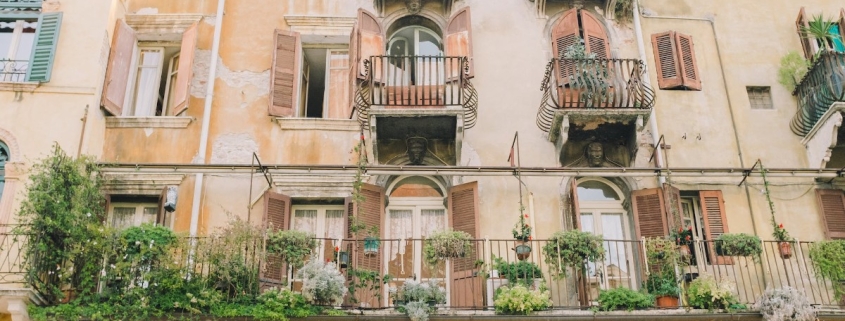Estate agents in Italy: peculiarities
Sometimes people willing to buy a property in Italy are amazed to learn that estate agents in Italy work in a different way than in their home country and that the entire buying process is, more or less, different.
To become an estate agent in Italy you need to have a clean criminal record, to be a resident in Italy, to hold a high school diploma, to pass an exam after a two month course and to register in the relevant register in your town. You don’t need to attend any refresher courses during your career.
In order to sell a property, estate agents sign an agreement with sellers, which lasts a set amount of time and is renewable until the property is sold. With the signing of such an agreement, the property falls in the portfolio of that given agent, who will be the only agent able to sell the property and legitimately earn a commission. At the expiry of the agreement, however, if the property hasn’t been sold, the seller can change estate agent.
The agreement between the seller and the agent entitles the agent to be paid a commission only when and if the property is sold.
The agent is entitled to be paid a commission even if the property is sold, during the validity of the agreement with the seller, to a buyer not presented by the agent, or if the buyer is presented by the agent but buys after the ending of the agreement.
The name of the agent and all their earnings are recorded in the rogito, the proper sale contract signed in front of the notary by the parties.
The bilateral agreement, also, entitles the agent to be paid a commission by the seller and also by the buyer.
Agents’ fees vary according to the location and the value of the property. Usually it’s 3-4%; for properties under a certain value, there can be a fixed fee of around €1-5000. Also, usually, the higher the price, the lower the commission, but in larger and expensive cities, like Rome or Milan, you can expect fees of 3-4% even on high value properties.
It is not uncommon that sellers pay a lower commission than buyers, or no commission at all.
Because the bilateral agreement between the seller and the agent entitles the agent to be paid their commission, it goes without saying that agents in Italy can only sell (and earn on) properties they have in their portfolio, i.e. properties for which they have signed an agreement with the seller. They cannot sell whatever property is on the market, because other properties will be in the portfolio of other agents who are the only people entitled to be paid a commission for their sales.
Occasionally estate agents sell properties which are in the portfolios of colleagues; however, this can happen when the agent, having the property in his/her portfolio, consents to split fees.
It also comes without saying that if you rely on one agent only to show you properties, you may end up to see very few properties or no properties at all, because at that given time that agent may not have any property suitable for you and may not find a colleague willing to split fees.
In these regards, it would be more effective to look at properties yourself on the most popular Italian property websites (immobiliare.it, idealista.it and casa.it) and on dedicated groups, make a shortlist of properties and engage with the agents of each property.
If you have read so far, you are likely considering buying a property in Italy; I hope this brief article has been useful in understanding the main characteristics of the job of an estate agent in Italy.
This article is not exhaustive and is a guidance only.
If you are not familiar with the buying process in Italy and need assistance, we can help; please contact us.
Barbara De Benedittis Relocation and Legal in Italy



